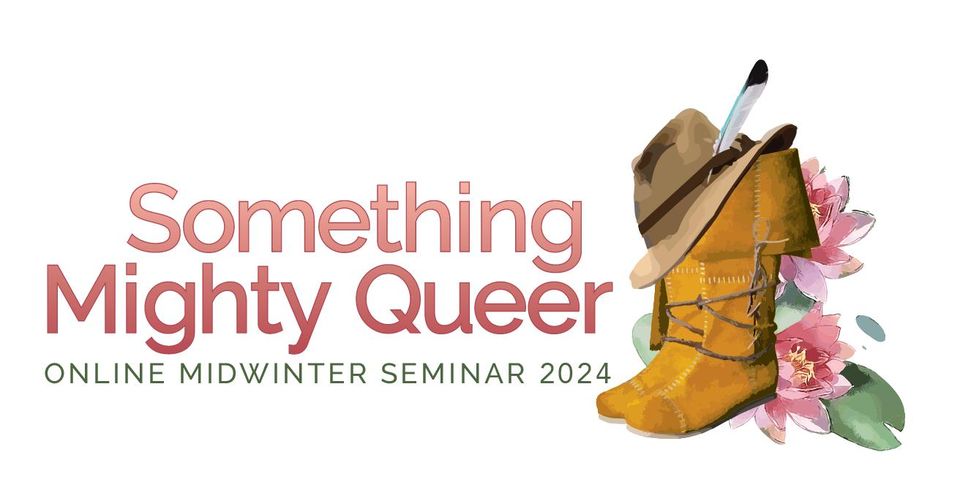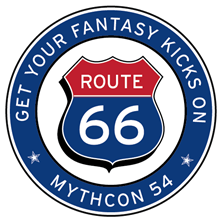Loading...
Event Website
https://www.mythsoc.org/oms/oms-2024.htm
Start Date
2-17-2024 1:00 PM
End Date
2-17-2024 1:50 PM
Description
The Mariner (and his wife): Rethinking Aldarion’s (A)sexuality Rory Queripel
“Aldarion and Erendis” (Unfinished Tales) is a rare example in Tolkien’s work of a marriage gone severely awry. Many readings of the tale apportion blame to Aldarion, who is seen as “unwilling” to make the marriage work (Fitzsimmons, 2015), cruel and unfeeling towards Erendis, who herself is characterised as resentful and unaccepting (Rosenthal, 2004). However, these readings rely on an assumption of a cisheteronormative and, more importantly, allosexual relationship between the couple.
This paper proposes an alternate view of Aldarion and his role in the story, suggesting the possibility that he is asexual and/or aromantic (i.e. he does not experience sexual and/or romantic attraction in ways considered societally normative), and is therefore constrained by a system of marriage and duty that is anathema to him and to which he does not connect in any personal way.
By queering Aldarion’s (a)sexuality, this paper seeks a reading more compassionate towards both him and Erendis, understanding them as people wronged by societal expectation and ‘normality’ as characterised by the couple’s “failure” to reach a balance between their gendered characteristics (Rawls, 2014). While Aldarion may not be exonerated from the harm his decisions have caused, this view shifts the blame from him personally to an amatonormative system that makes a villain of him, as well as Erendis and those around them.
Wide Seas Islander, Asexual, & Autist: The Intersectional Mythopoeic Characterization of Cliopher (Kip) Mdang Robin Anne Reid
Victoria Goddard’s Nine Worlds Series (consisting of seven interlaced sub-series containing, as of the writing of this proposal, twenty longer works [novels and novellas] and four collections of short stories) is a tour de force of mythopoeic worldbuilding, genre-blending, and queer characterization. I completely agree with Alexandra Rowland that “You [all] Should Really Be Reading Victoria Goddard’s Nine Worlds Series.”
In this presentation, I analyze how Goddard’s intersectional characterization of Cliopher (Kip) Mdang, a co-protagonist and point of view character in the “Lays of the Hearth Fire” sub-series, queers a number of the major conventions of epic fantasy while creating a strongly mythopoeic work of fantasy that writes back to Tolkien’s legendarium.
Cliopher/Kip’s intersectional identity as a Wide Seas Islander, an asexual, and an autist meets the sixth of Alexander Doty’s definitions of “queer” as:
those aspects of. . . textual coding that seem to establish spaces not described by, or contained within, straight, gay, lesbian, bisexual, transsexual or transgendered understandings and categorization of gender and sexuality—this is a more radical understanding of queer, as queerness here is something apart from established gender and sexuality categories, not the result of vague or confused coding or positioning (6-7).
The narrative foregrounds the importance of Kip being a Wide Seas Islander, a national identity dismissed by most of the Last Emperor’s court as “primitive,” even barbaric, and establishes the specific parameters of his asexuality in At the Feet of the Sun. Characterizing him as an autist is my interpretation of a number of his characteristics and behaviors as described in the series.
Creative Commons License

This work is licensed under a Creative Commons Attribution-NonCommercial-No Derivative Works 4.0 International License.
Included in
Children's and Young Adult Literature Commons, Comparative Literature Commons, Digital Humanities Commons, European Languages and Societies Commons, Literature in English, Anglophone outside British Isles and North America Commons, Literature in English, British Isles Commons, Literature in English, North America, Ethnic and Cultural Minority Commons, Medieval Studies Commons, Modern Languages Commons, Modern Literature Commons, Other English Language and Literature Commons
Asexualities, Aromantics, and Autists in Epic Fantasy by Tolkien and Goddard
The Mariner (and his wife): Rethinking Aldarion’s (A)sexuality Rory Queripel
“Aldarion and Erendis” (Unfinished Tales) is a rare example in Tolkien’s work of a marriage gone severely awry. Many readings of the tale apportion blame to Aldarion, who is seen as “unwilling” to make the marriage work (Fitzsimmons, 2015), cruel and unfeeling towards Erendis, who herself is characterised as resentful and unaccepting (Rosenthal, 2004). However, these readings rely on an assumption of a cisheteronormative and, more importantly, allosexual relationship between the couple.
This paper proposes an alternate view of Aldarion and his role in the story, suggesting the possibility that he is asexual and/or aromantic (i.e. he does not experience sexual and/or romantic attraction in ways considered societally normative), and is therefore constrained by a system of marriage and duty that is anathema to him and to which he does not connect in any personal way.
By queering Aldarion’s (a)sexuality, this paper seeks a reading more compassionate towards both him and Erendis, understanding them as people wronged by societal expectation and ‘normality’ as characterised by the couple’s “failure” to reach a balance between their gendered characteristics (Rawls, 2014). While Aldarion may not be exonerated from the harm his decisions have caused, this view shifts the blame from him personally to an amatonormative system that makes a villain of him, as well as Erendis and those around them.
Wide Seas Islander, Asexual, & Autist: The Intersectional Mythopoeic Characterization of Cliopher (Kip) Mdang Robin Anne Reid
Victoria Goddard’s Nine Worlds Series (consisting of seven interlaced sub-series containing, as of the writing of this proposal, twenty longer works [novels and novellas] and four collections of short stories) is a tour de force of mythopoeic worldbuilding, genre-blending, and queer characterization. I completely agree with Alexandra Rowland that “You [all] Should Really Be Reading Victoria Goddard’s Nine Worlds Series.”
In this presentation, I analyze how Goddard’s intersectional characterization of Cliopher (Kip) Mdang, a co-protagonist and point of view character in the “Lays of the Hearth Fire” sub-series, queers a number of the major conventions of epic fantasy while creating a strongly mythopoeic work of fantasy that writes back to Tolkien’s legendarium.
Cliopher/Kip’s intersectional identity as a Wide Seas Islander, an asexual, and an autist meets the sixth of Alexander Doty’s definitions of “queer” as:
those aspects of. . . textual coding that seem to establish spaces not described by, or contained within, straight, gay, lesbian, bisexual, transsexual or transgendered understandings and categorization of gender and sexuality—this is a more radical understanding of queer, as queerness here is something apart from established gender and sexuality categories, not the result of vague or confused coding or positioning (6-7).
The narrative foregrounds the importance of Kip being a Wide Seas Islander, a national identity dismissed by most of the Last Emperor’s court as “primitive,” even barbaric, and establishes the specific parameters of his asexuality in At the Feet of the Sun. Characterizing him as an autist is my interpretation of a number of his characteristics and behaviors as described in the series.


